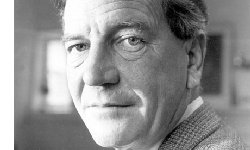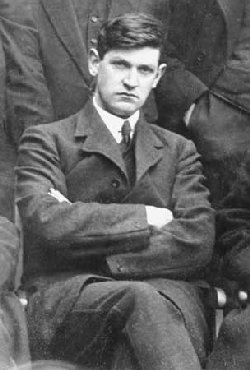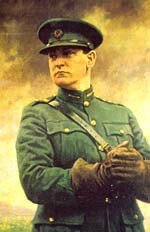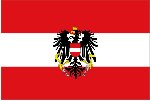 |
|
 |
We meet every six weeks or so, usually on a Wednesday evening, at one of our members' houses.
At our meetings one of our number gives a talk on a historical subject of particular interest to him/her for about forty minutes, then we have a discussion about what we have heard.
We currently have fourteen members but new recruits are always welcome. It is not compulsory to give talks so don’t be put off coming by thinking that you will have to perform.
At each meeting we decide on a speaker, subject and venue for the following meeting.
The choice of topic is often not known until the meeting actually takes place, as a group member will volunteer and then decide what the subject matter will be.
Would anyone who would like to do a one off presentation to the group on any historical event or person contact Pam Curley and a suitable date could be agreed.
Previous meetings:
January Benjamin Disraeli
February Daniel Foe and the Great Storm of 1703
March Peasants' Revolt - Kath Wareham
April Town's of the Middle Ages - Michael Sparrow
May No Meeting
June Computing - Diane Saxon
July Kim Philby - Mike Humphris
August Michael Collins and the formation of the Republic of Ireland - Pam Curley
September Post WW1 Austria - Marlene Brookes
November Various
Report on January Meeting
Michael Sparrow's presentation on Disraeli was very interesting and certainly made the group see a different side to this famous historical character. Disraeli was born in 1804 to Jewish parents of Italian descent, but when Benjamin was twelve, his father decided to have all his children baptized into the Church of England which enabled him to become an MP in 1837: although the law was subsequently changed in 1858 to allow Jews to become Members of Parliament. In his twenties and thirties Disraeli had several affairs, always with married women who were older than himself: he must have had a great deal of charisma and charm, something which Queen Victoria obviously found irresistible. Originally, his main aim was to be a writer and he did write several novels over his lifetime. His first tenure as Prime Minister occurred in 1868 when Lord Derby, PM at that time, resigned due to ill health and recommended Disraeli to Queen Victoria to replace him: he only won one election in 1874 and became PM in his own right. He was also known for his opposition to repealing the Corn Laws and his long standing antagonistic relationship with William Gladstone. He died in 1881.
Report on February Meeting
Given the recent floods this topic was very apposite. Daniel Foe was born in London in 1660, changing his name to de Foe when an adult. He is best known for Robinson Crusoe and Moll Flanders, published in 1719 and 1722 respectively. However, before this he had had a somewhat disastrous business career, having been declared bankrupt on a number of occasions. In late November in 1703 the weather had started to deteriorate with very strong winds, but on the night of the 26th November, five or six cyclones had been unleashed on Britain. The storm continued at its height throughout the night and strong winds continued for a week. It was said to be the greatest disaster for the navy and de Foe said that the city of London looked like the aftermath of a battle. Hundreds of ships and seamen were lost and one ship was reported to have been blown from the Helford River in Cornwall to Newport on the Isle of Wight. Considerable detail of this storm is known because de Foe advertised for people to send in their personal experiences of the storm and in 1704 he published The Storm, which was a composite of people's first hand experiences. The storm devastated an area south of a line from Aberystwyth to the Humber, thousands of trees were blown down and there was hardly an orchard left standing.
Report on March Meeting
Town's of the Middle Ages
The Peasants' Revolt took place in the summer of 1381 and was one of England's most dramatic events.
The unpopular feudal system was still in place, which meant that most peasants were not free to move from place to place to sell their labour. However, peasant deaths as a result of the Bubonic Plague of 1348-51 decimated the labour force which gave peasants some bargaining power to increase their wages. This was very unpopular with the lords and a law was passed that wages could not exceed those paid in 1346. Added to this a poll tax was introduced of 1 shilling for every male aged over 16½ in order to fill the royal coffers. When tax collectors went to the villages to collect the money that had not been paid they were attacked. Events escalated and culminated in thousands of peasants marching to London demanding to see the King in order to present a petition for changes to their working conditions. The revolt was generally quite well contained, but there was some violence: the rioters attacked some buildings capturing a number of dignitaries and executing them. The King agreed to their demands and asked them to go home. As a result of the revolt there were no more poll taxes and it helped to accelerate the decline of the feudal system.
Report on April Meeting
English towns had become established during the 300 years of the Roman occupation. However, it had not always been a one-way growth, they all had their ups and downs due to many different factors: the Black Death had reduced the population of London by half. The Normans and French had been influential on some existing towns by flattening many existing buildings and building castles in their place. Trade was, and still is, a very important factor and in the 11th century the top five towns were London, Winchester, Oxford, Norwich and Thetford, but by the 1400s, Bristol, Boston, Hull and Kings Lynn had taken over as a result of their port facilities. This is very reminiscent of the changes in towns and cities in more recent history with the advent of the industrial revolution and the cotton trade and even more recently with the closure of the coal mines.
History of computing
Diane began by going back to the earliest known days of calculating
machines; the first known piece of equipment was the abacus dated in
various civilisations from about 2000BC.
Children in Japan are still taught to use an abacus. The binary system
on which our present day system is based dates back to the ancient
world in various forms in China and India. Early developments were in
finding a way to mechanise arithmetic processes.
In 1642 Pascal invented a calculator that could add, subtract and
divide and in the 1700s a wooden geared calculating machine was
invented. The 1800s saw the development of the differential engine by
Charles Babbage. Babbage also created a design for what would have been
the first general purpose computer but this was not built and we had to
wait nearly 100 years for this to be a reality.
Many of the developments in this area were from the UK and USA. In 1927
Alan Turing developed the concept of a theoretical computing machine;
the Turing Machine. The invention of the transistor in 1947
revolutionised computing as devices could be made much smaller. The
1950s saw the emergence of mass produced computers and the 1980s the
incursion of computers into our homes; maybe you remember the Specturm,
BBC Micro and the Commodore Pet? Once we were able to get computers to
‘talk’ to each other, we had the foundations for the world
of the internet and social networking. The World Wide Web was launched
in 1991 along with WiFi which has enabled the huge growth in mobile
devices that we have seen in recent years.
 It has been said of Philby that
'treason was in the blood' as his
father had also been involved in spying. In 1940 Philby took up a post
in the Foreign Office, by which time he was already in contact with the
KGB: what a stroke of luck for them. His career progressed quite
quickly and he soon became the Head of Section 5 which was responsible
for Spain. He is also credited with giving the Russians many
names of British agents in Russia which ultimately led to their
deaths. Ironically, in 1944 he became Head of the Anti-Communist
Department! By 1951 suspicions had been raised and a press
conference was held in his mother's flat in London. His attitude
was one of total indifference, as if the claims were so ridiculous they
hardly needed refuting, which of course he did. It wasn't until
1963 that he eventually confessed to a close friend that he had indeed
been a spy, followed immediately by his defection to Moscow. He
must have been very charismatic and clever to dupe everyone for so long
and he has been described as, 'Suave, a fomidable drinker and womaniser
who enjoyed deception as a challenge.' He did untold damage to
close friends and colleagues, and before he died in 1988 he was
reported to have said, 'I would do it all again.'
It has been said of Philby that
'treason was in the blood' as his
father had also been involved in spying. In 1940 Philby took up a post
in the Foreign Office, by which time he was already in contact with the
KGB: what a stroke of luck for them. His career progressed quite
quickly and he soon became the Head of Section 5 which was responsible
for Spain. He is also credited with giving the Russians many
names of British agents in Russia which ultimately led to their
deaths. Ironically, in 1944 he became Head of the Anti-Communist
Department! By 1951 suspicions had been raised and a press
conference was held in his mother's flat in London. His attitude
was one of total indifference, as if the claims were so ridiculous they
hardly needed refuting, which of course he did. It wasn't until
1963 that he eventually confessed to a close friend that he had indeed
been a spy, followed immediately by his defection to Moscow. He
must have been very charismatic and clever to dupe everyone for so long
and he has been described as, 'Suave, a fomidable drinker and womaniser
who enjoyed deception as a challenge.' He did untold damage to
close friends and colleagues, and before he died in 1988 he was
reported to have said, 'I would do it all again.'Report on August Meeting
Michael Collins played a very influential role in the establishment of the Republic of Ireland.
 Born in
West Cork in 1890 he grew up in an atmosphere of nationalistic
fervour. In 1906 he went to work in London where he stayed for ten
years, during which time he became a member of the Irish Republican
Brotherhood (IRB): later to become the IRA.
Born in
West Cork in 1890 he grew up in an atmosphere of nationalistic
fervour. In 1906 he went to work in London where he stayed for ten
years, during which time he became a member of the Irish Republican
Brotherhood (IRB): later to become the IRA.  He
participated in the Easter Uprising of 1916 in Dublin, and it was their
defeat against a superior military force that made Collins realise that
pitched battles were costly and foolhardy: this led to a change to
guerilla tactics. He formed a network of spies to keep
the IRB well informed and also organised for arms to be smuggled into
Ireland from Manchester, Liverpool and London. The devastating
conflict continued, but eventually, on the 6th December 1921, Collins
signed the Anglo Irish Treaty creating the Republic of Ireland but
excluding the six northern counties which would remain part of the
United Kingdom. This caused a huge rift within the IRA which
resulted in civil war between those who supported the Treaty and those
hard line nationalists who did not believe in partition. On the
day Collins had signed the Treaty he was reported to have said, 'I have
just signed my own death warrant', which was very prophetic as by the
22nd August 1922 he had been assassinated by the IRA.
He
participated in the Easter Uprising of 1916 in Dublin, and it was their
defeat against a superior military force that made Collins realise that
pitched battles were costly and foolhardy: this led to a change to
guerilla tactics. He formed a network of spies to keep
the IRB well informed and also organised for arms to be smuggled into
Ireland from Manchester, Liverpool and London. The devastating
conflict continued, but eventually, on the 6th December 1921, Collins
signed the Anglo Irish Treaty creating the Republic of Ireland but
excluding the six northern counties which would remain part of the
United Kingdom. This caused a huge rift within the IRA which
resulted in civil war between those who supported the Treaty and those
hard line nationalists who did not believe in partition. On the
day Collins had signed the Treaty he was reported to have said, 'I have
just signed my own death warrant', which was very prophetic as by the
22nd August 1922 he had been assassinated by the IRA.Report on the September meeting
 After the World War 1, Austria lost
more than any other nation at the peace treaty that followed: its vast
empire that had lasted hundreds of years which included Hungary,
Romania, parts of Poland and the Ukraine, Bohemia, Slovakia and parts
of Northern Italy. Democracy did not come easily to a country
that had never experienced it and soon both main factions had armed
militias. The capital, Vienna, however, had a government which
was able to introduce real reforms to improve life for the majority of
its citizens but for the rest of the country things were not so good:
in the inter-war years Austria had 13 different chancellors. At
the end of World War 2 it was divided, like Germany, into four sectors
and did not gain its independence until 1955, and then only on
condition that it would remain neutral, a status which has served it
well. Austria today is one of the most prosperous nations in the
European Union and although it has higher taxation than average in the
EU, this ensures good provision of social services. A class of
children in an Austrian school was recently asked what they wanted to
be when they grew up, the response from quite a few was "A pensioner".
After the World War 1, Austria lost
more than any other nation at the peace treaty that followed: its vast
empire that had lasted hundreds of years which included Hungary,
Romania, parts of Poland and the Ukraine, Bohemia, Slovakia and parts
of Northern Italy. Democracy did not come easily to a country
that had never experienced it and soon both main factions had armed
militias. The capital, Vienna, however, had a government which
was able to introduce real reforms to improve life for the majority of
its citizens but for the rest of the country things were not so good:
in the inter-war years Austria had 13 different chancellors. At
the end of World War 2 it was divided, like Germany, into four sectors
and did not gain its independence until 1955, and then only on
condition that it would remain neutral, a status which has served it
well. Austria today is one of the most prosperous nations in the
European Union and although it has higher taxation than average in the
EU, this ensures good provision of social services. A class of
children in an Austrian school was recently asked what they wanted to
be when they grew up, the response from quite a few was "A pensioner".Report on November Meeting
Every member of the group was asked to select any year of their choosing, prior to 1938, and prepare a five minute talk on important or interesting events of that year. The following years were chosen:- 1670, 1652, 186BC, 1902, 1833, 1928, 1912, 1847 and 1900. Some of the topics covered were William Penn, Archimedes, the end of slavery and the introduction of restricted working hours for children and the Boer War, so we had a very varied and interesting discussion.
Pam
Pam Curley